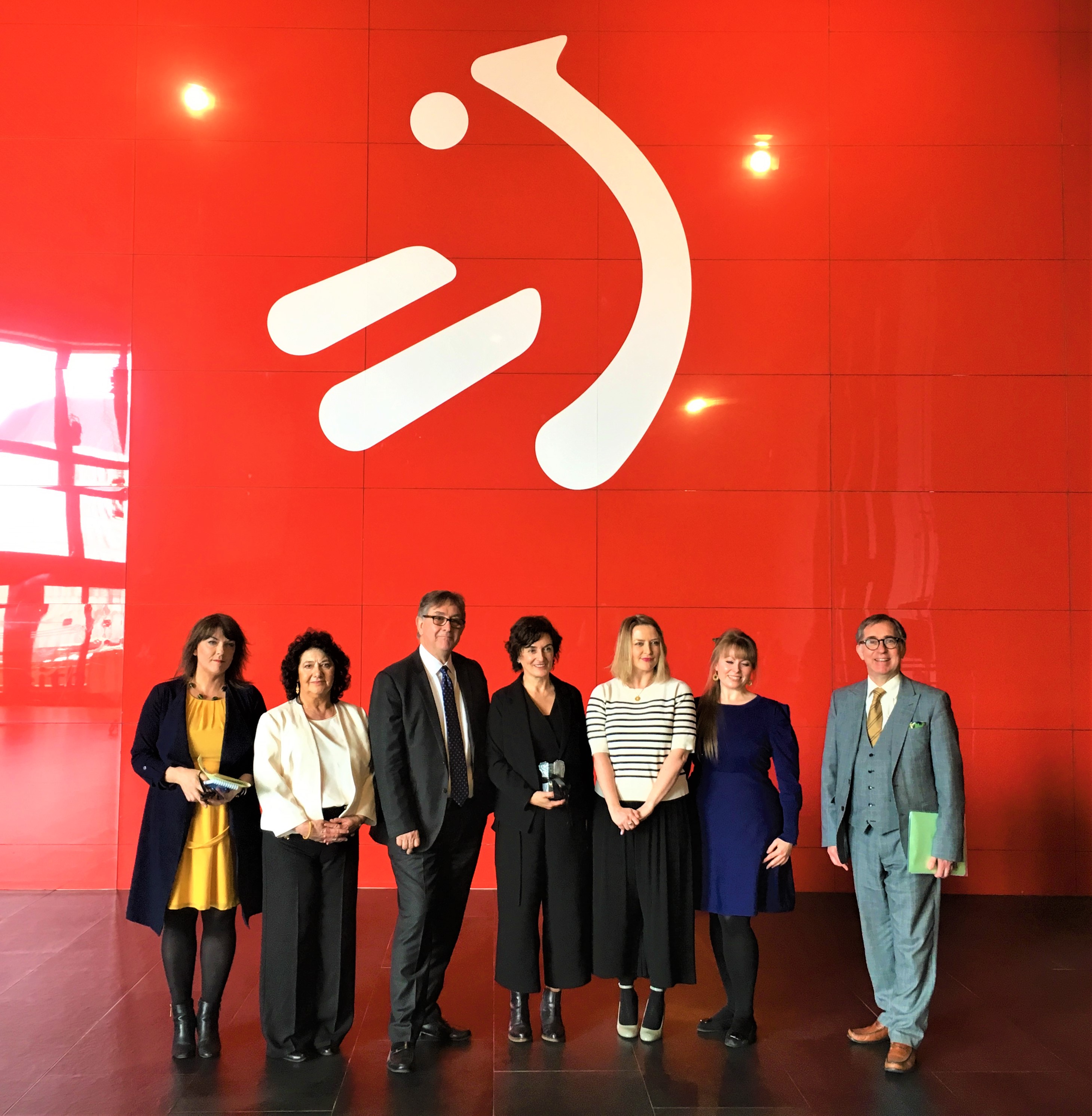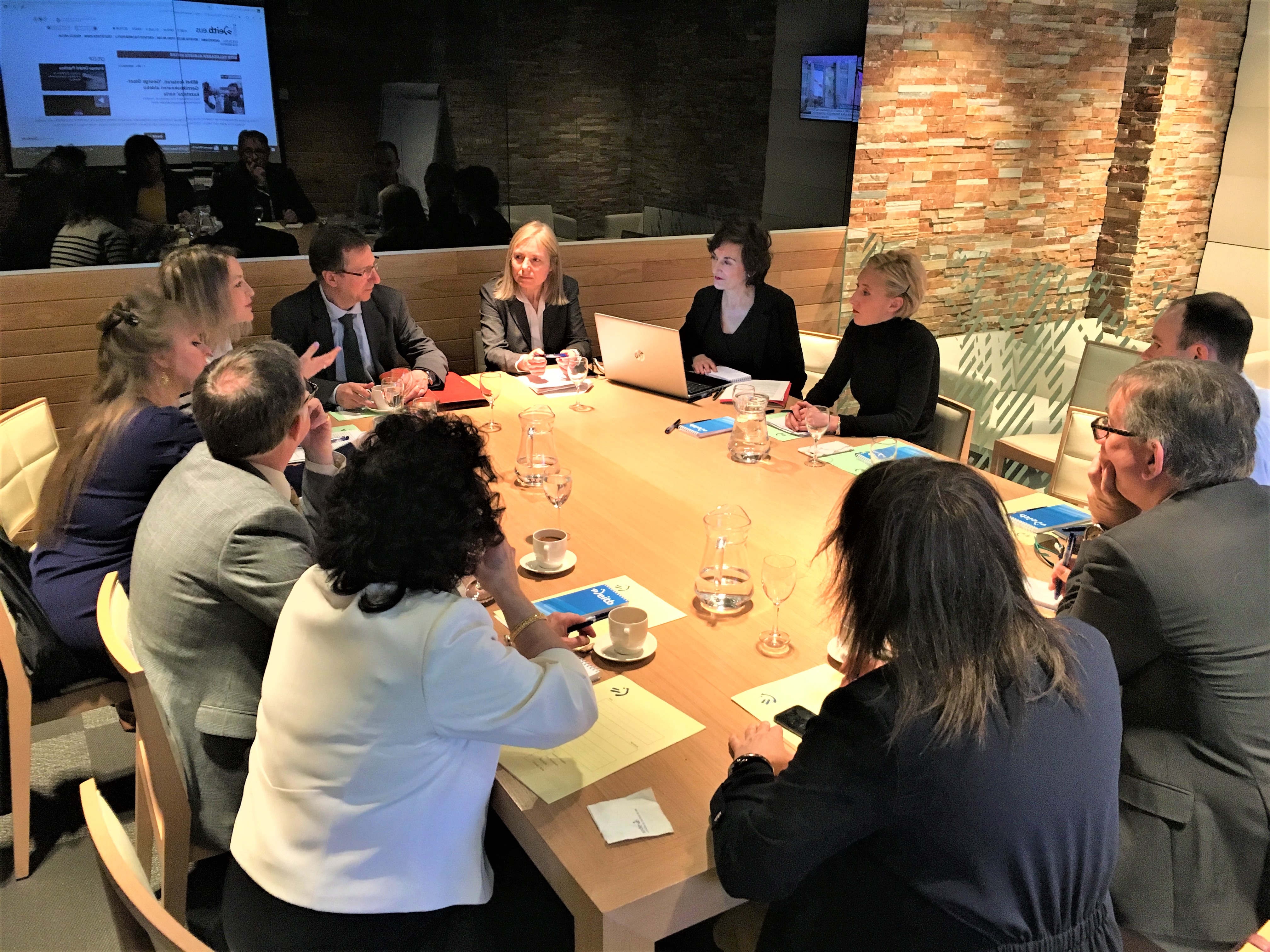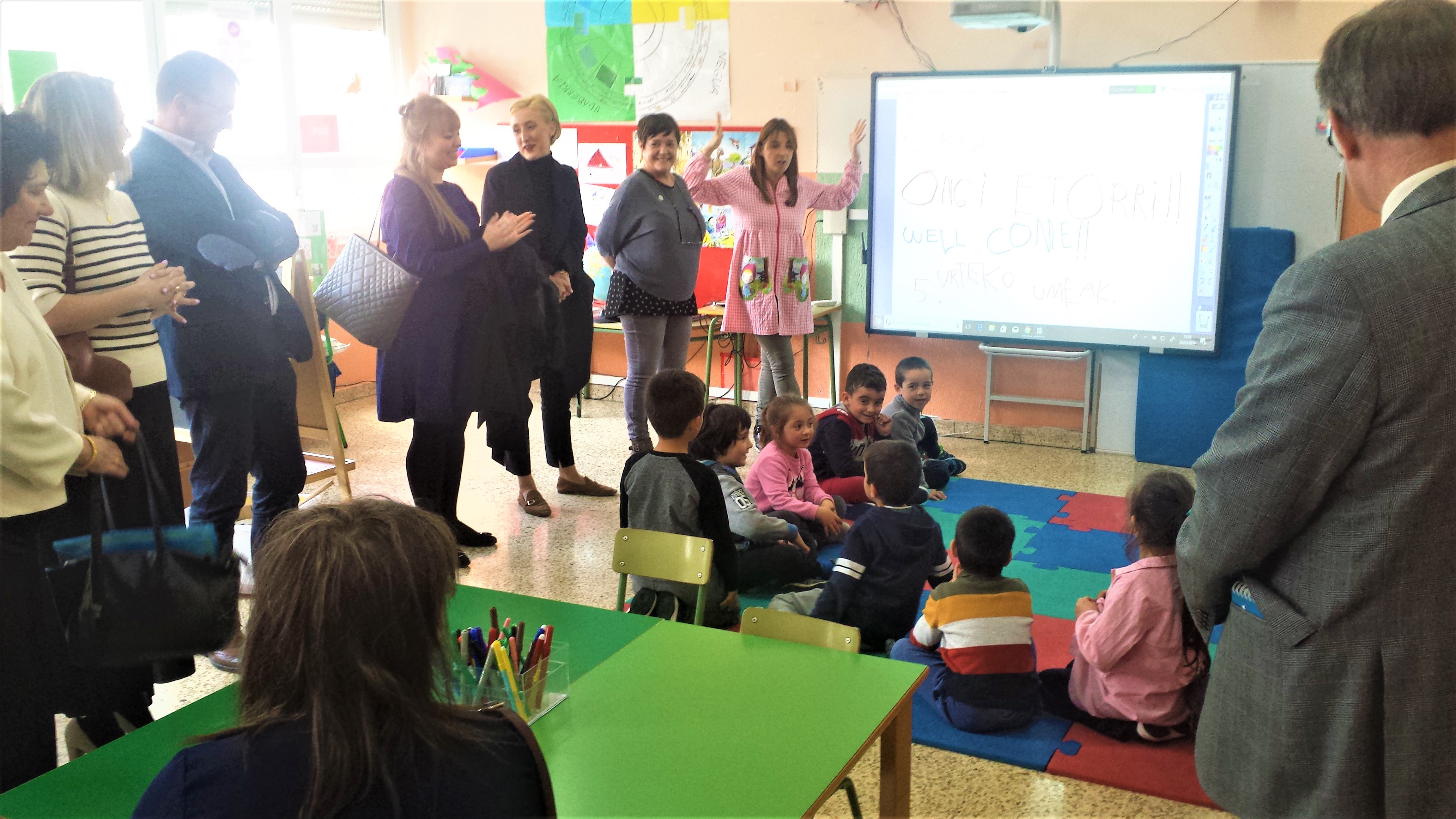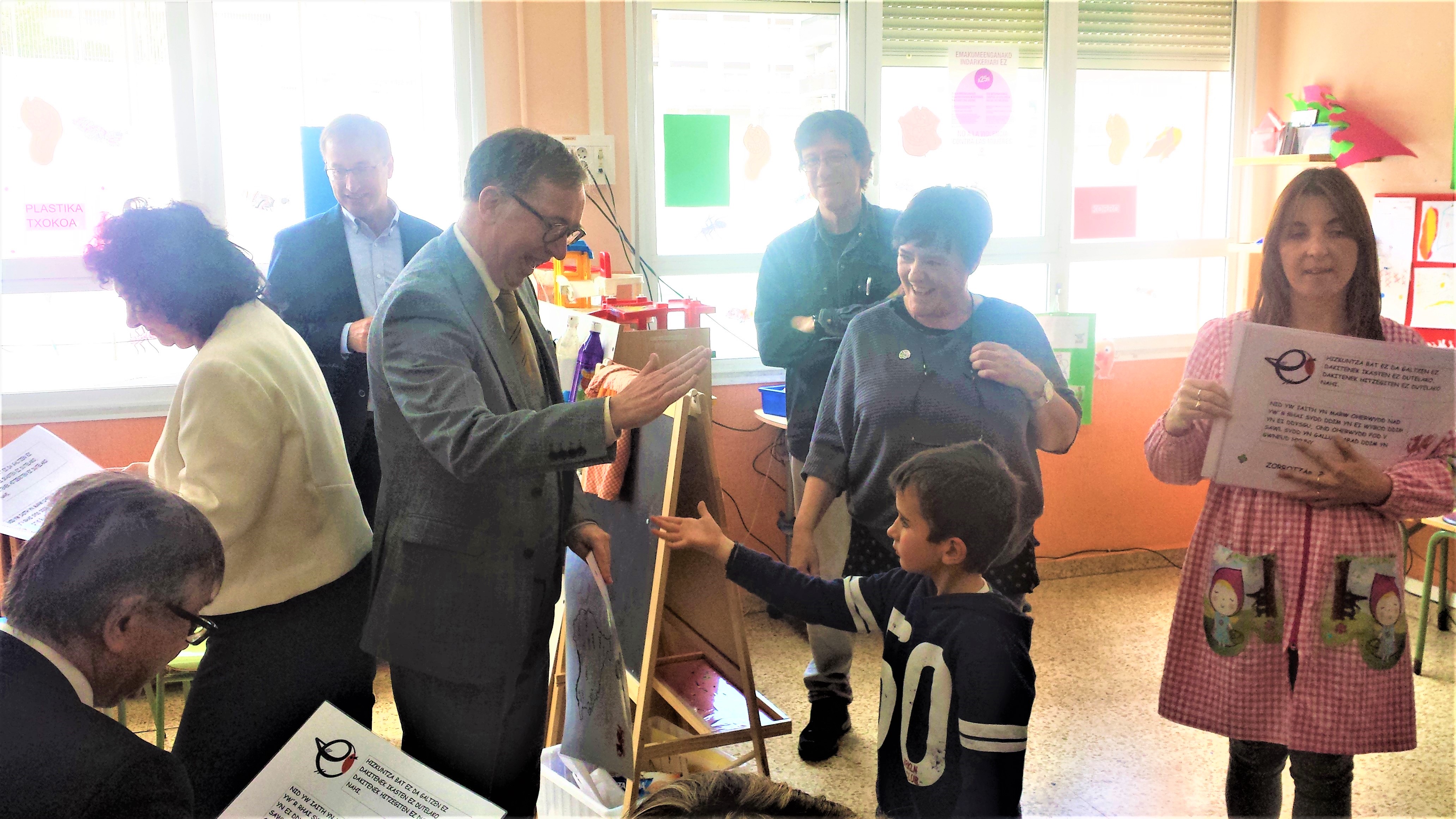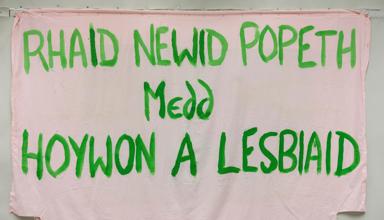
Purpose
In March the Culture, Welsh Language and Communications Committee visited the Basque Country to explore the ways in which civil society and legislation in the Basque Country promotes and enhances language acquisition. These examples of best practice from other countries, similar in size to Wales, will be used to inform the inquiry into ‘Supporting the Welsh Language’.
The key topics the Committee were:
- To explore the impact of the partial devolution of broadcasting in the Basque Country, benefits and drawbacks and funding issues.
- To examine the effects of the numerous broadcast outlets offered in the Basque language.
- To gain greater understanding of language policies and strategies adopted and implemented in the Basque Country, particularly around education, economy and public administration.
- How the Basque Government has approached language planning in the region.
- To examine the impact and effectiveness of education policies in the region, from early years through to vocational and university education.
- Promotion and facilitation of the language in the community and with the private sector.
- The balance between language promotion and legislation.
EiTB – Basque TV and Radio Broadcaster
Members visited EiTB (Euskal Irrati Telebista), which is the publicly funded broadcaster for Basque and Spanish language TV and radio output in the Basque Country. The visit provided Committee Members with an opportunity to tour the main offices and broadcasting facilities.
The Committee met with Maite Iturbe, the General Director of EiTB, and Odile Kruzeta, Radio and Editorial Coordination Director. The General Director outlined the background to the organisation and current provision and output offered.
CEIP Educational Centre – Siete Campas Zorrozgoiti Elementary School
Following the visit to EiTB, Members visited a Basque immersion school in an area of Bilbao called Zorrotza - an area with high social deprivation, and also home to many of Bilbao’s immigrant population. Members visited a pre-school classroom, where they were presented with a poster with a Basque proverb, which had also been translated into Welsh. Members were then taken to a primary classroom to see how the children learn in the Basque language.
Royal Basque Language Academy
Members visited the Royal Basque Language Academy in Bilbao, and met with the Vice-Secretary, Erramun Osa. The Royal Academy of the Basque Language is the official body responsible for the Basque language, which includes carrying out research and standardisation of the language.
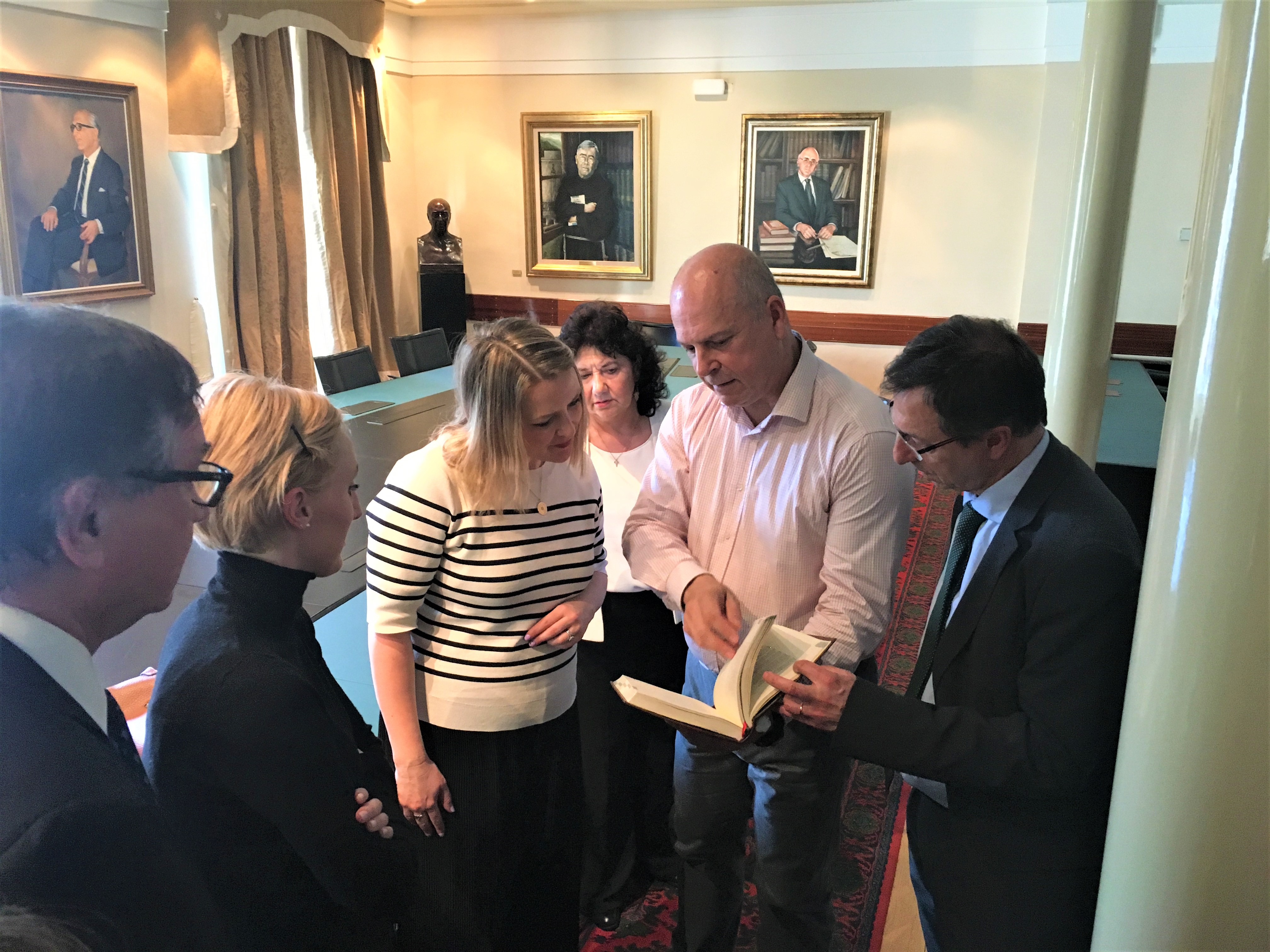
Basque Government
On the final day of the visit, Members visited Vitoria-Gasteiz, the Capital City of the Basque Autonomous Community and seat of Government. Here, Members met with the Vice-Minister of Linguistic Policy, Miren Dobaran and Eugenio Jimenez, Director of Centers and Planning.
Members heard that after Franco’s dictatorship ended, some 40 Basque immersion schools opened – the children who attended were predominantly from those families who continued to speak the Basque language in the home during the Franco period, even though the language was outlawed.
Members heard that during Franco’s dictatorship, clandestine schools existed, known as Ikastola, which had helped keep the language alive during this period.
The provision of Basque language education has been critical to the survival of the language, and has proven to be the most successful aspect of Basque language planning. It has been successful both in terms of volume of activity and numbers of participants involved. It has also received significant sums of Government funding over the last three decades.
There is a long-term socio-economic plan to increase usage of Basque in the private sector, and also to develop digital media and productions in the Basque language.
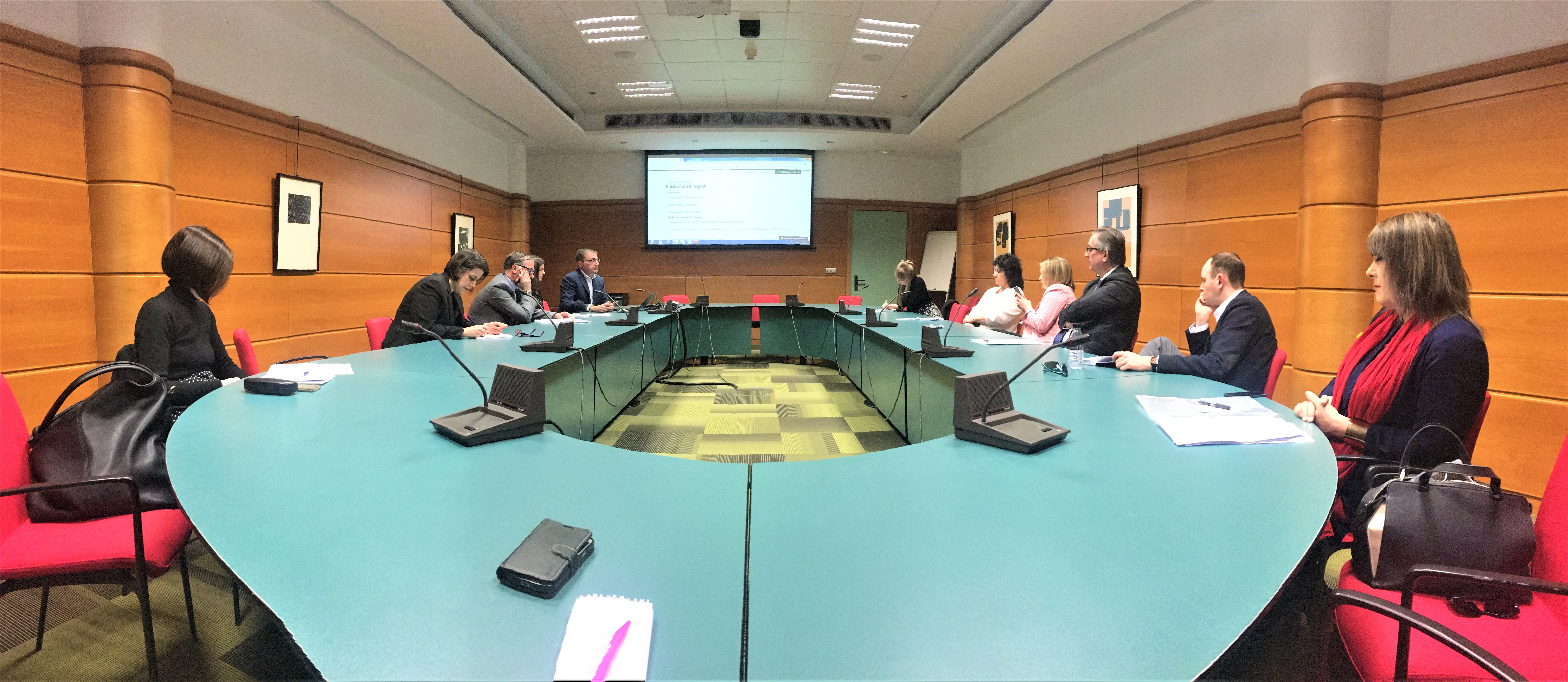
Basque Parliament
Before leaving the Basque Country, Members visited the Basque Parliament. Here, they were greeted by the Basque President, Bakartxo Tejeria, along with other Members of the Basque Parliament.
All Committee Members signed the book of honour to mark their visit to the Parliament and the President presented the Chair of the Committee with a wood carving of a tree (which is symbolic to the Basque people) to mark the Committee’s visit.
After the presentation, Members took their place in a committee meeting room, where a joint session was held with Members of the European Affairs and External Relations Commission.
During the meeting, Members heard that there had been great effort and investment to promote the language, but that the next step was to increase Basque language use and to mainstream the language across all government bodies, including the health service.
For more on this inquiry, please visit the Committee’s webpage.


